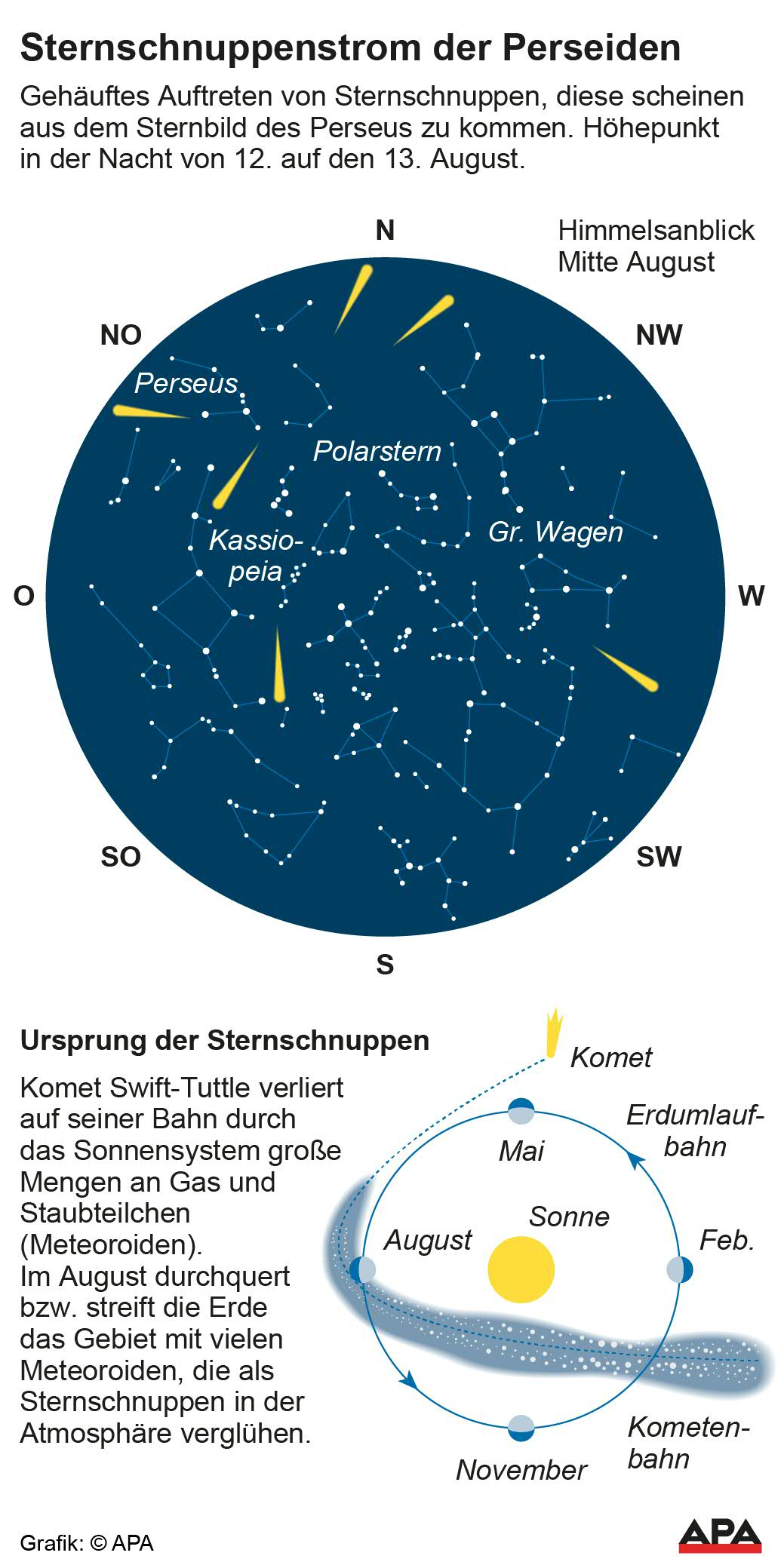"Least Favorable Conditions" for Peak of the Perseids
The light effects, created by tiny particles and dust grains when they enter the Earth's atmosphere at high speed and burn up, are called shooting stars. This dust can come from comets that lose part of their material as they orbit the sun. These tiny particles remain on the comet's path. When the Earth crosses this cosmic trail of debris, the dust particles cause a meteor shower.
Light from Full Moon Hinders Sightings at the Peak of the Perseids
This happens every year in mid-August when the Earth crosses the path of the comet Swift-Tuttle. Its dust trail creates the Perseid meteor shower. The name comes from the fact that it looks as if stars are falling from the constellation Perseus. The meteor shower is also called "Tears of St. Lawrence" because its appearance coincides with the feast day of the martyr St. Lawrence on August 10th and was interpreted as tears of the heavens over the martyrdom of St. Lawrence.

At least for the expected maximum of the Perseids on August 12th between 9:30 PM and 12:30 AM, there are the "most unfavorable conditions," according to Weiland. This timing is three days after the full moon. Its light makes it difficult to see shooting stars. Nevertheless, a look at the night sky is worthwhile, as the activity period of the Perseids extends over more than a month. Beautiful Perseids, sometimes even fireballs, can already be observed in the last days of July and the first days of August. The visibility period begins on July 17th and ends on August 24th.
(APA/Red)
This article has been automatically translated, read the original article here.





